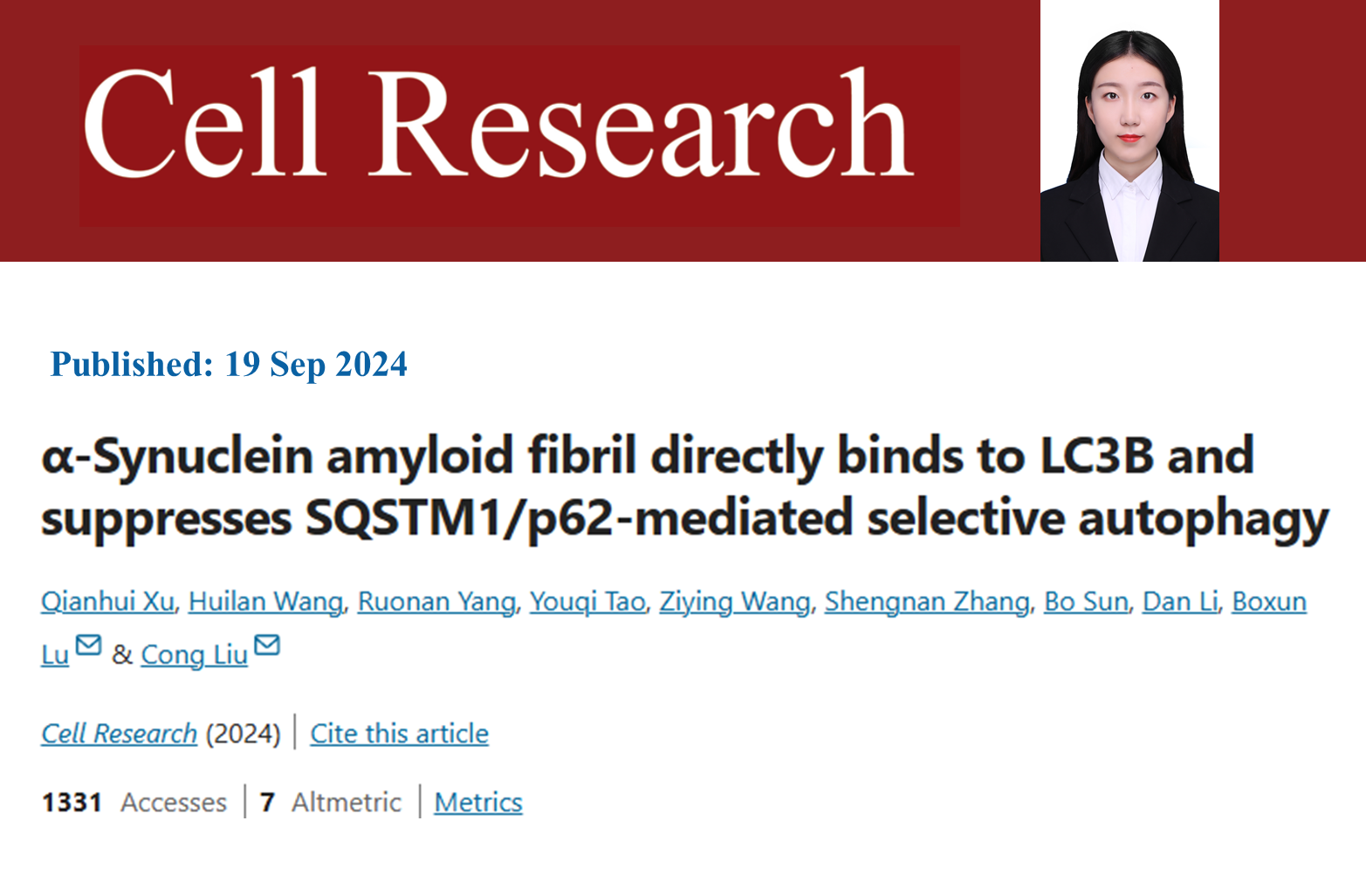Congratulations to Qianhui Xu for publishing their work in Cell Research!

Abstract: In this study, we show that α-syn fibrils may suppress selective autophagy via their direct binding to LC3B. In vitro experiments demonstrated that α-syn fibrils interact with LC3B with a significantly higher affinity compared to the α-syn monomers. α-Syn fibrils utilize their negatively charged C-terminal region to bind the positively charged pocket of LC3B. Importantly, the binding site of α-syn on LC3B considerably overlaps with that of p62, leading to reduced LC3B–p62 interaction via the competitive binding of α-syn fibrils. Furthermore, α-syn fibril treatment in cells reduced the autophagic flux of p62 and K63-ubiquitinated proteins, which are degraded via selective autophagy in cells. This suggests that under pathological conditions, excessive α-syn fibril binding to LC3B might occupy the interface needed for p62 binding, thereby impairing p62-mediated selective autophagy. This could lead to a breakdown in selective autophagy and ultimately disrupts cellular protein balance. Our cellular experiment results showed a modest but significant suppression of selective autophagy by α-syn PFF treatment for a relatively short time (hours), while in the long-term progression of PD (years), α-syn aggregation may have a chronic and accumulative impact on selective autophagy.
沪ICP备2022014231号-1


